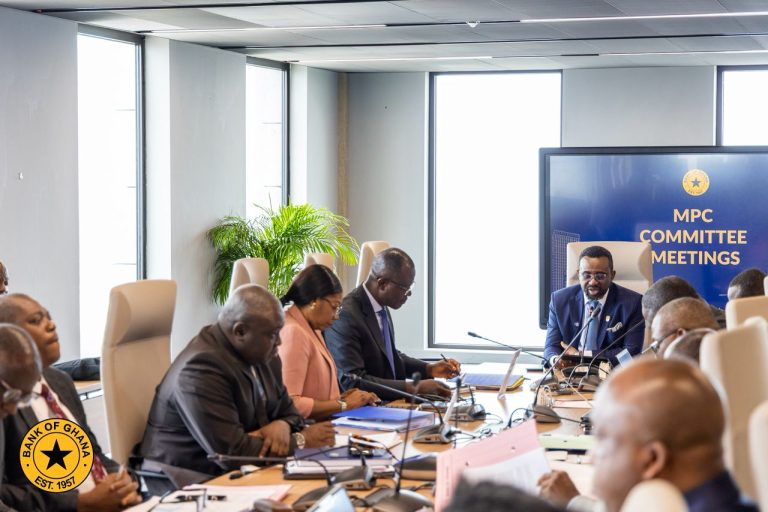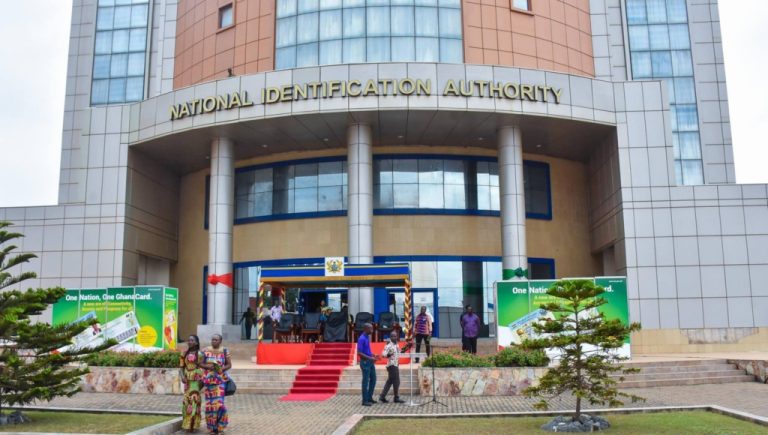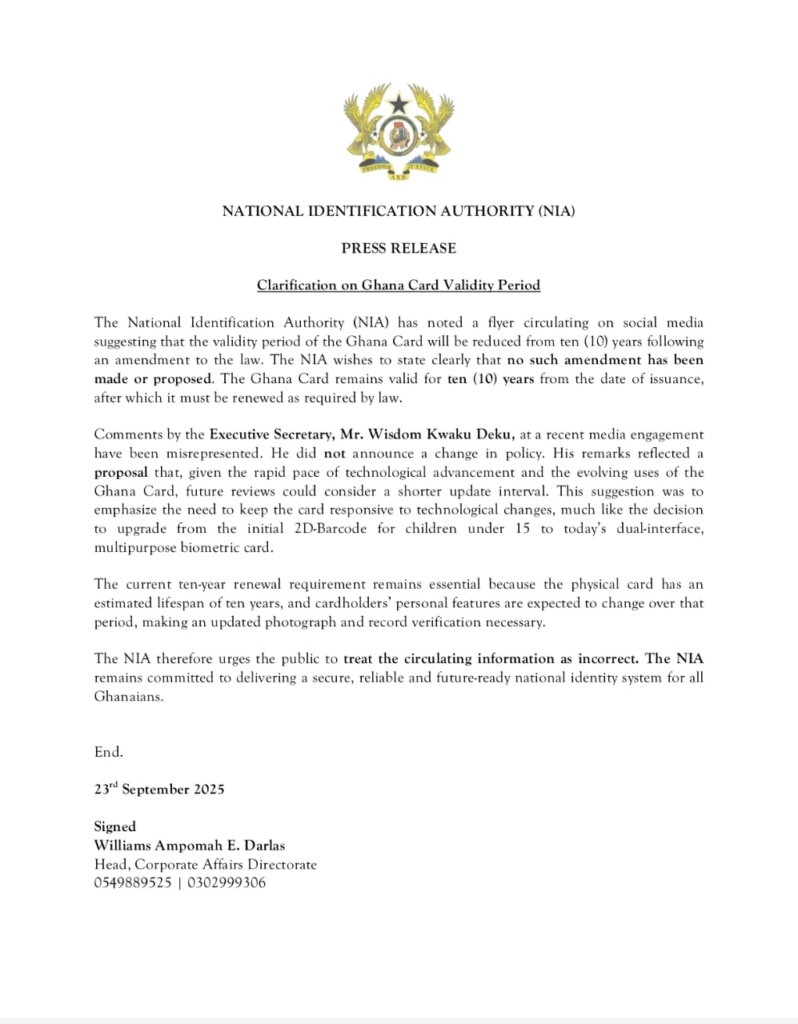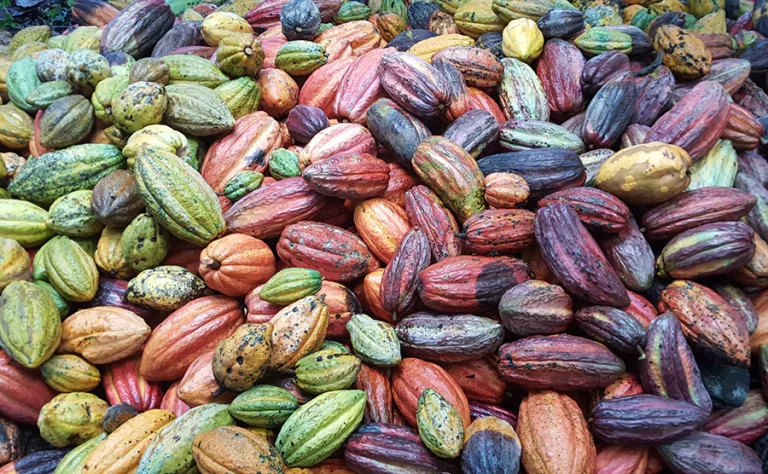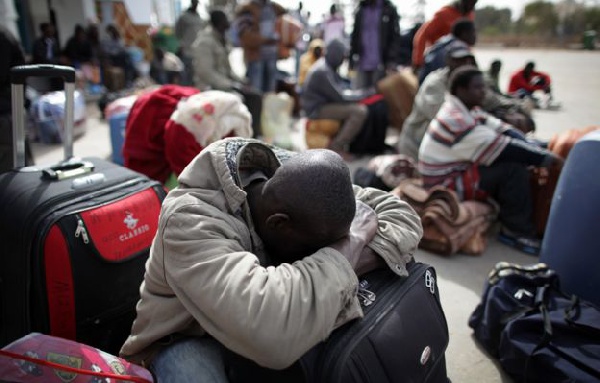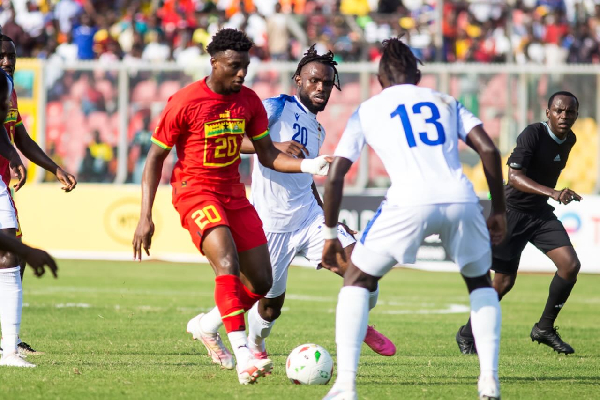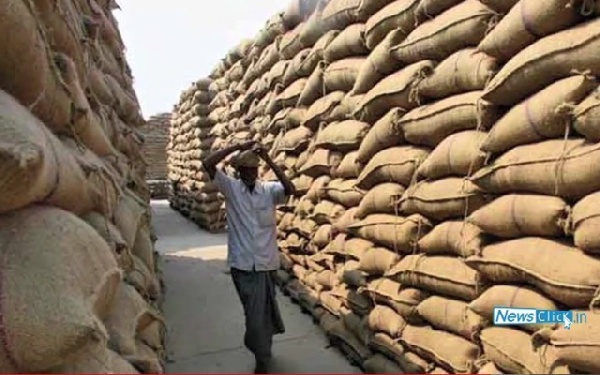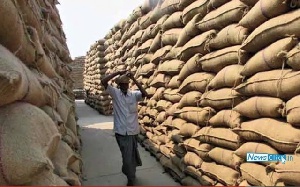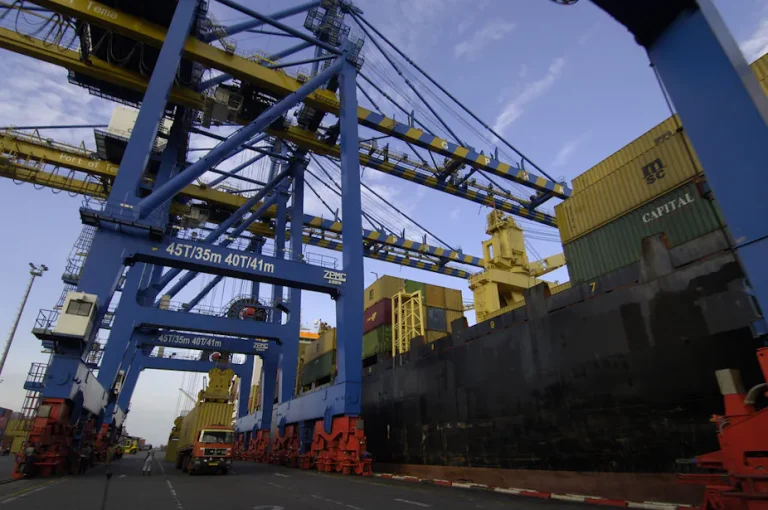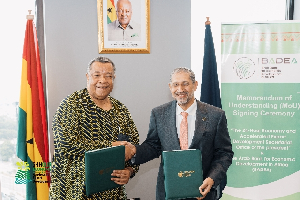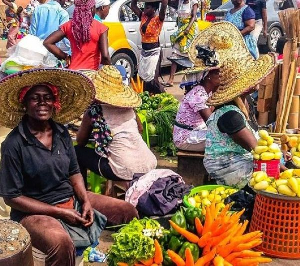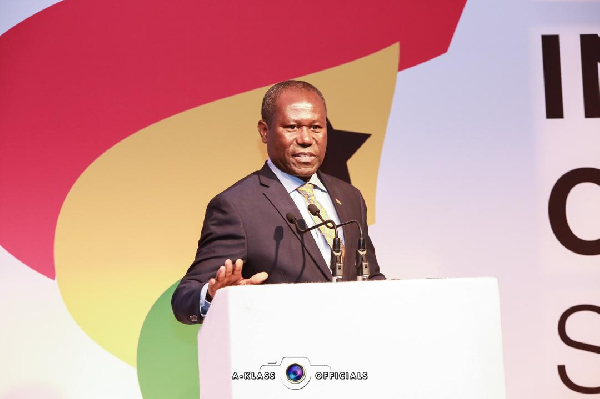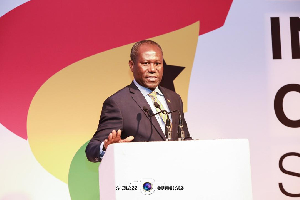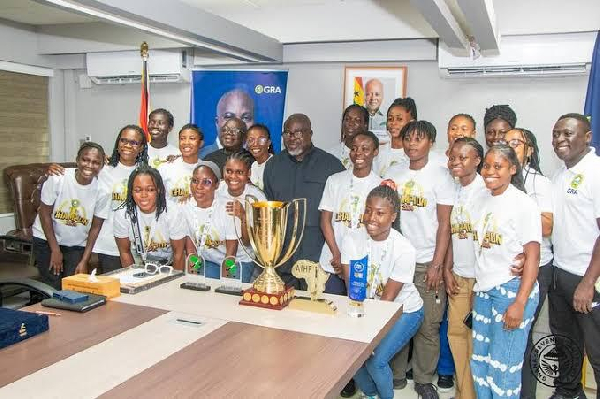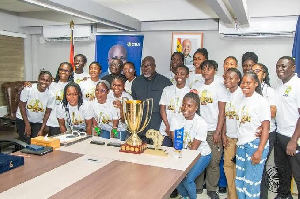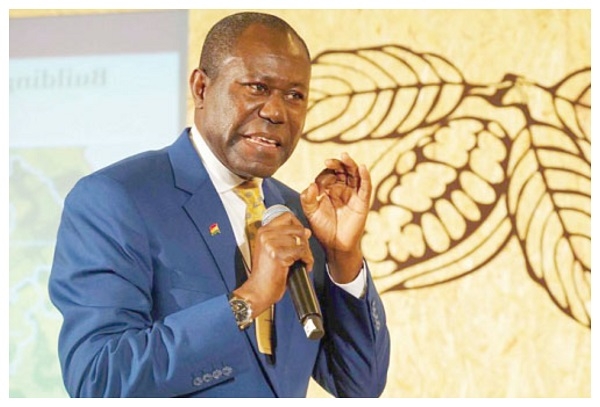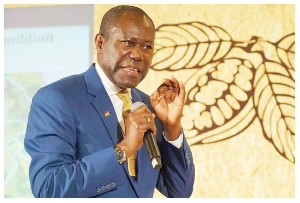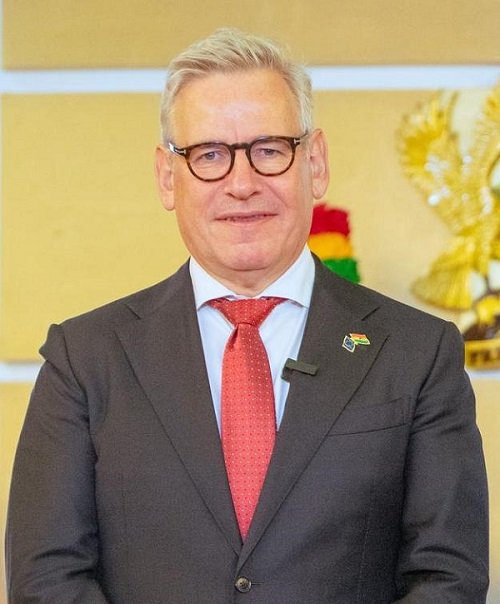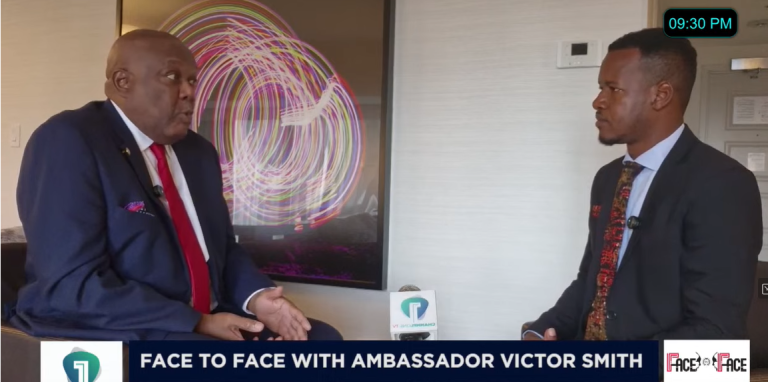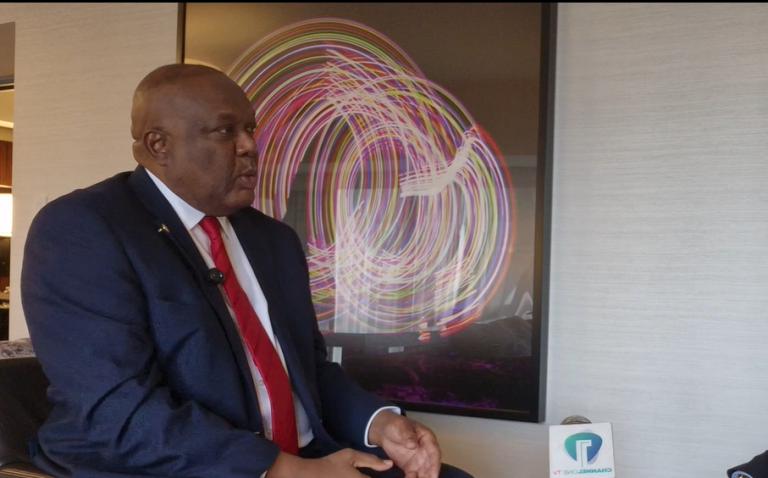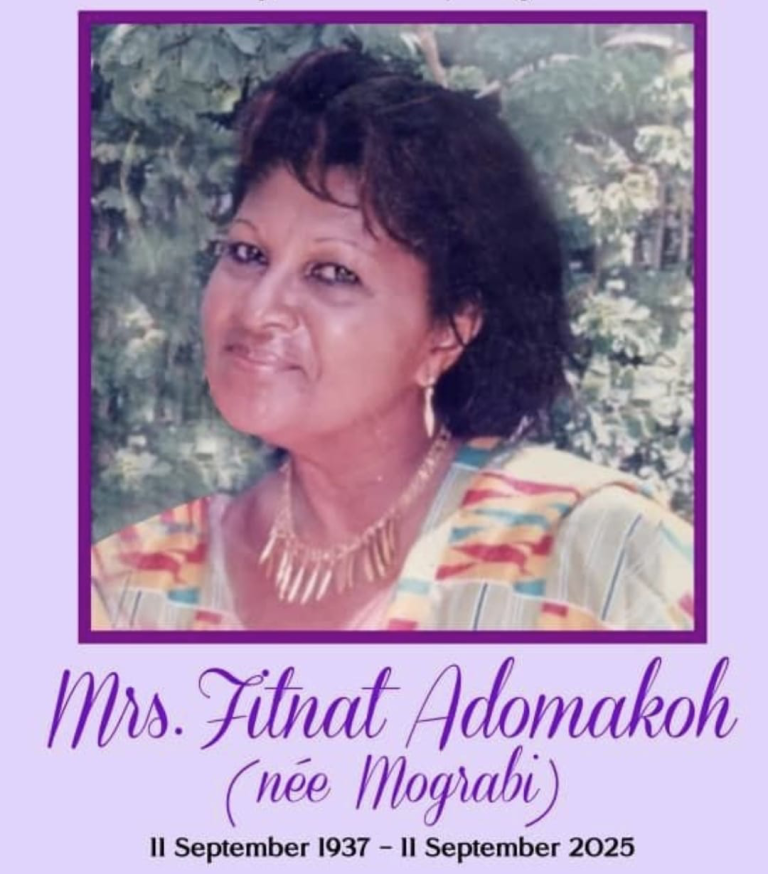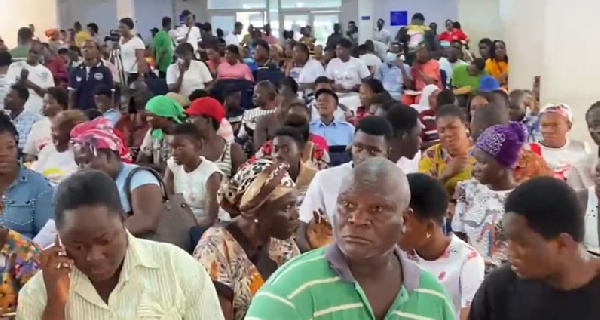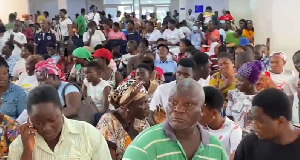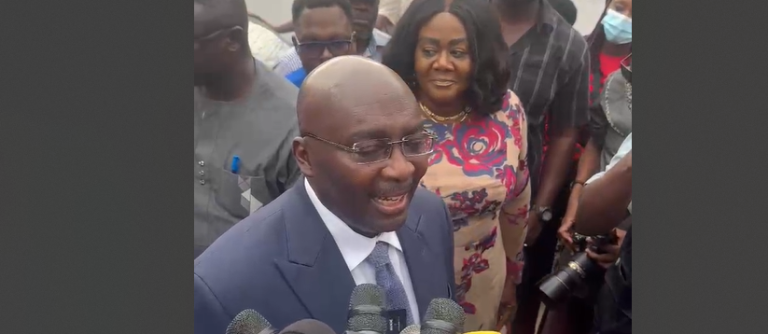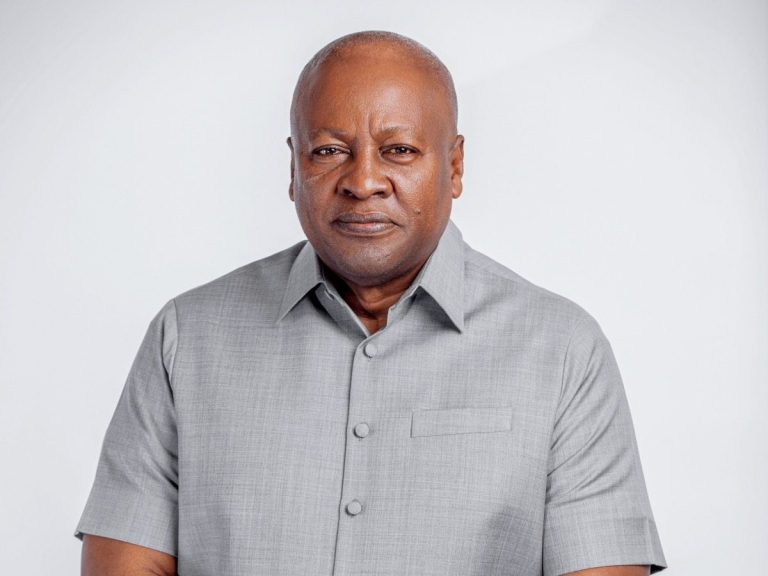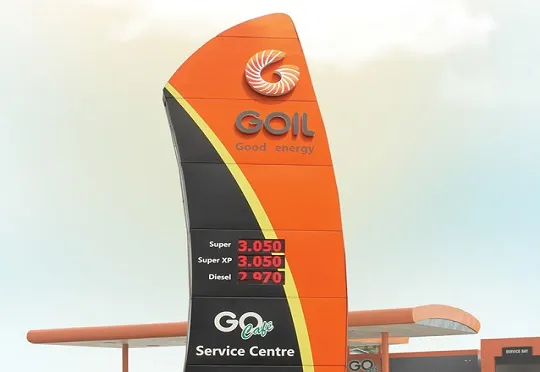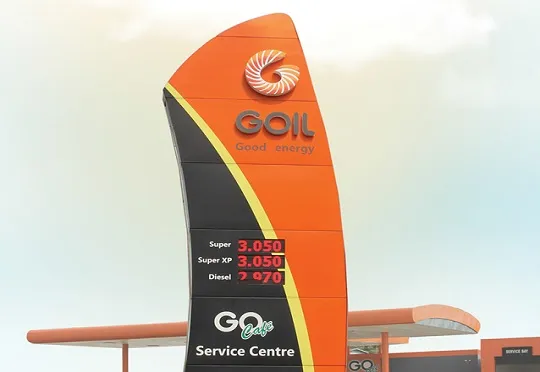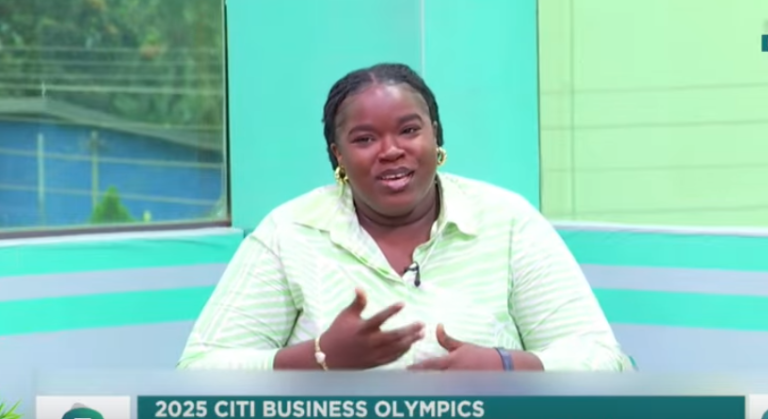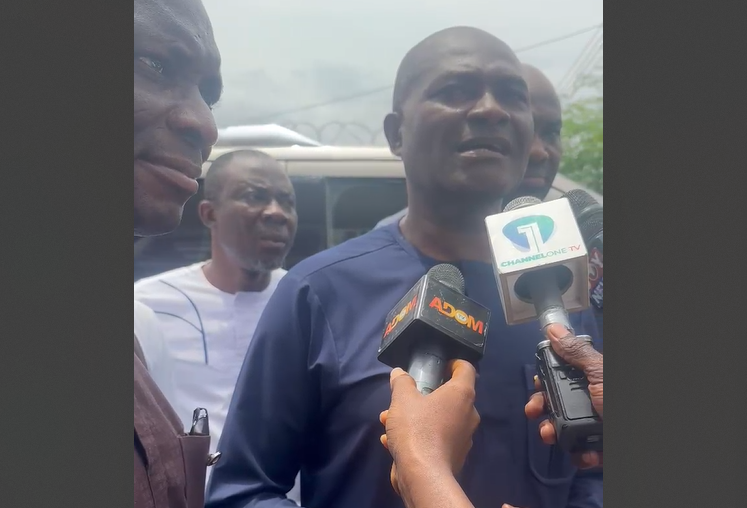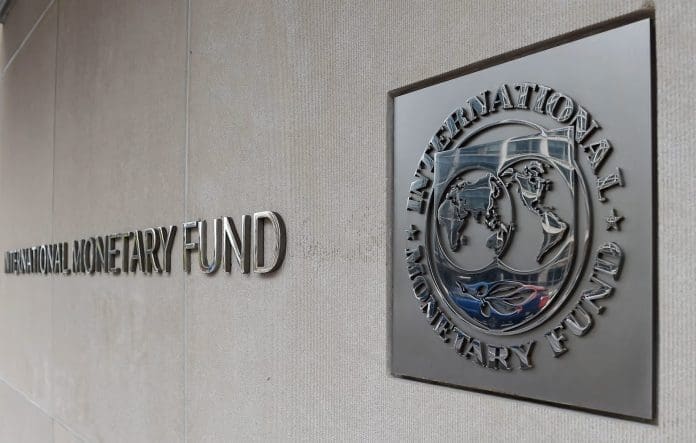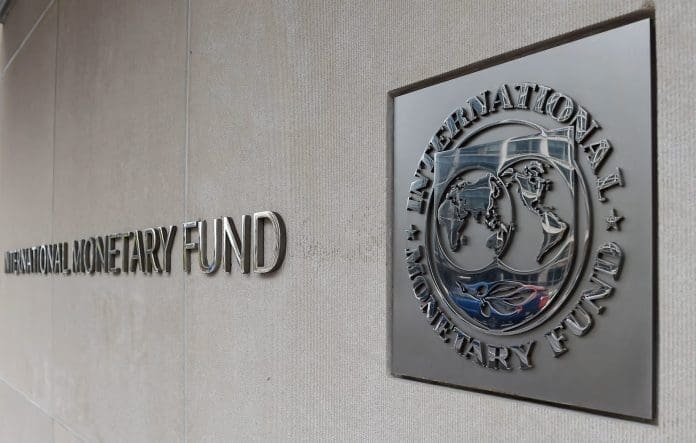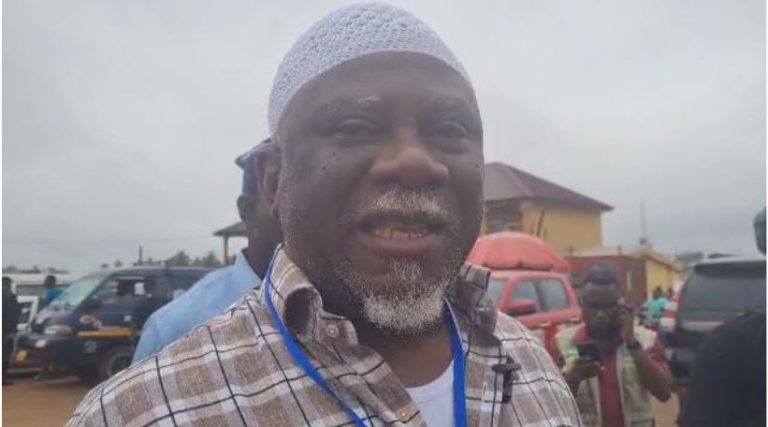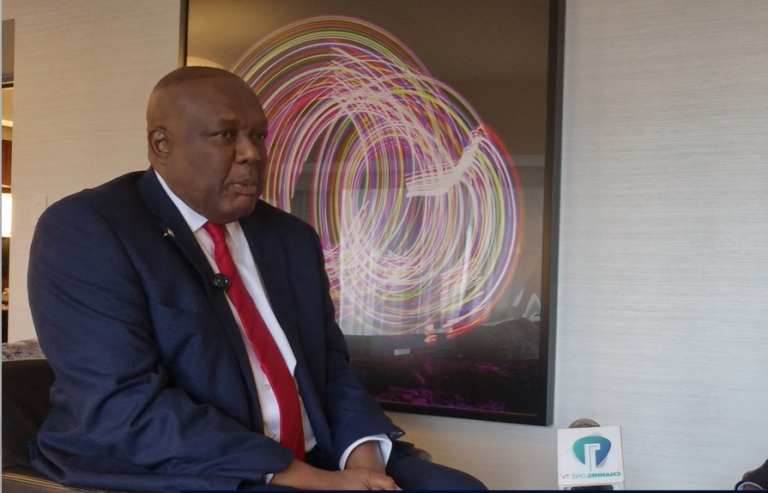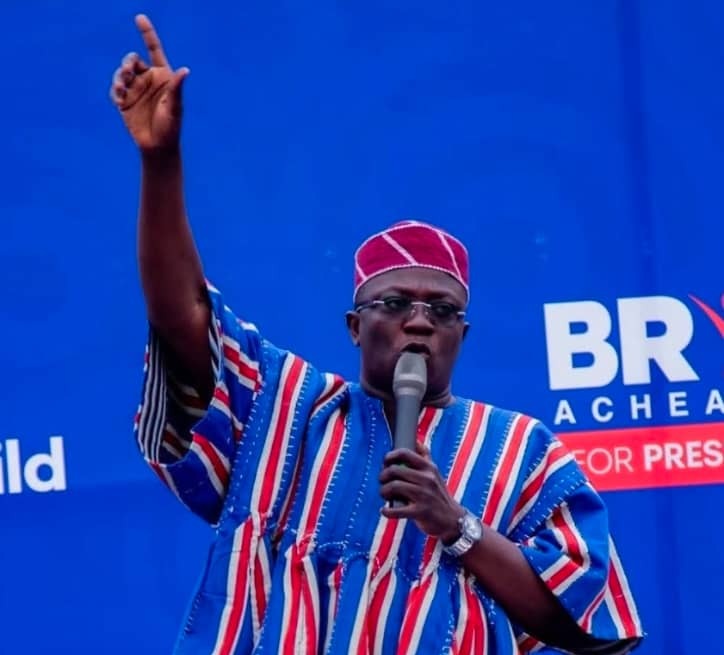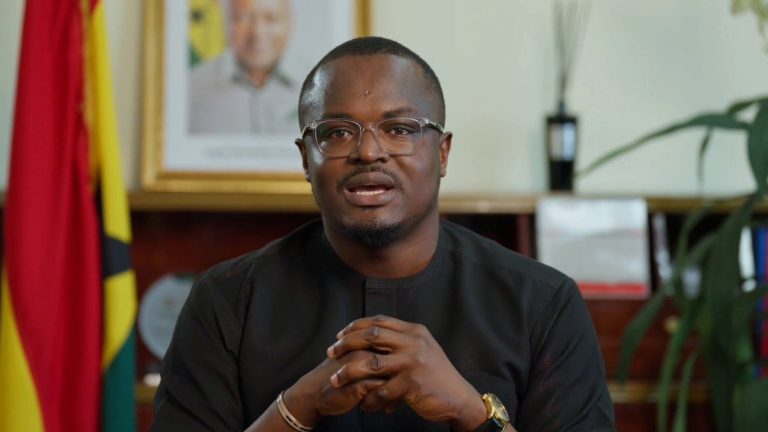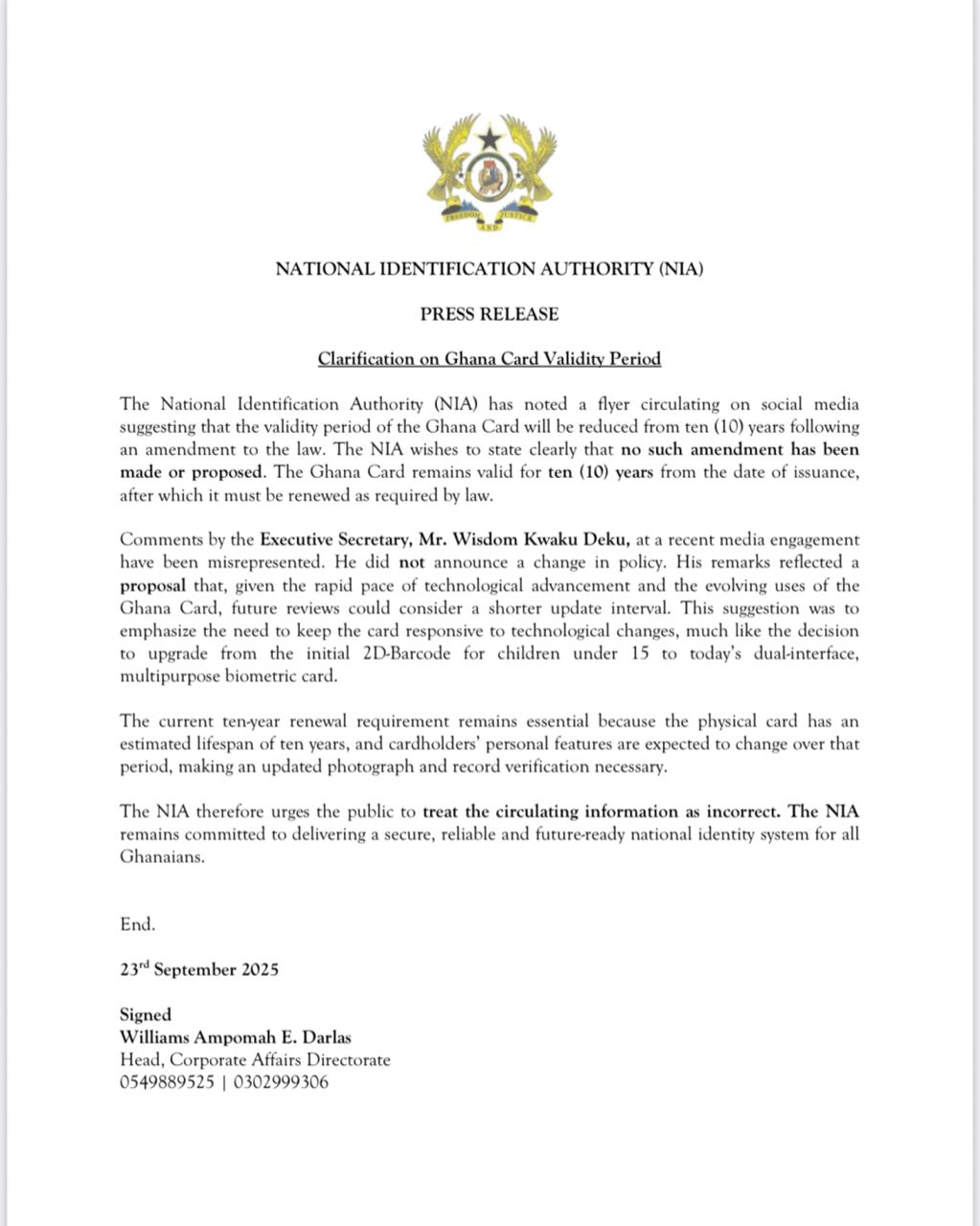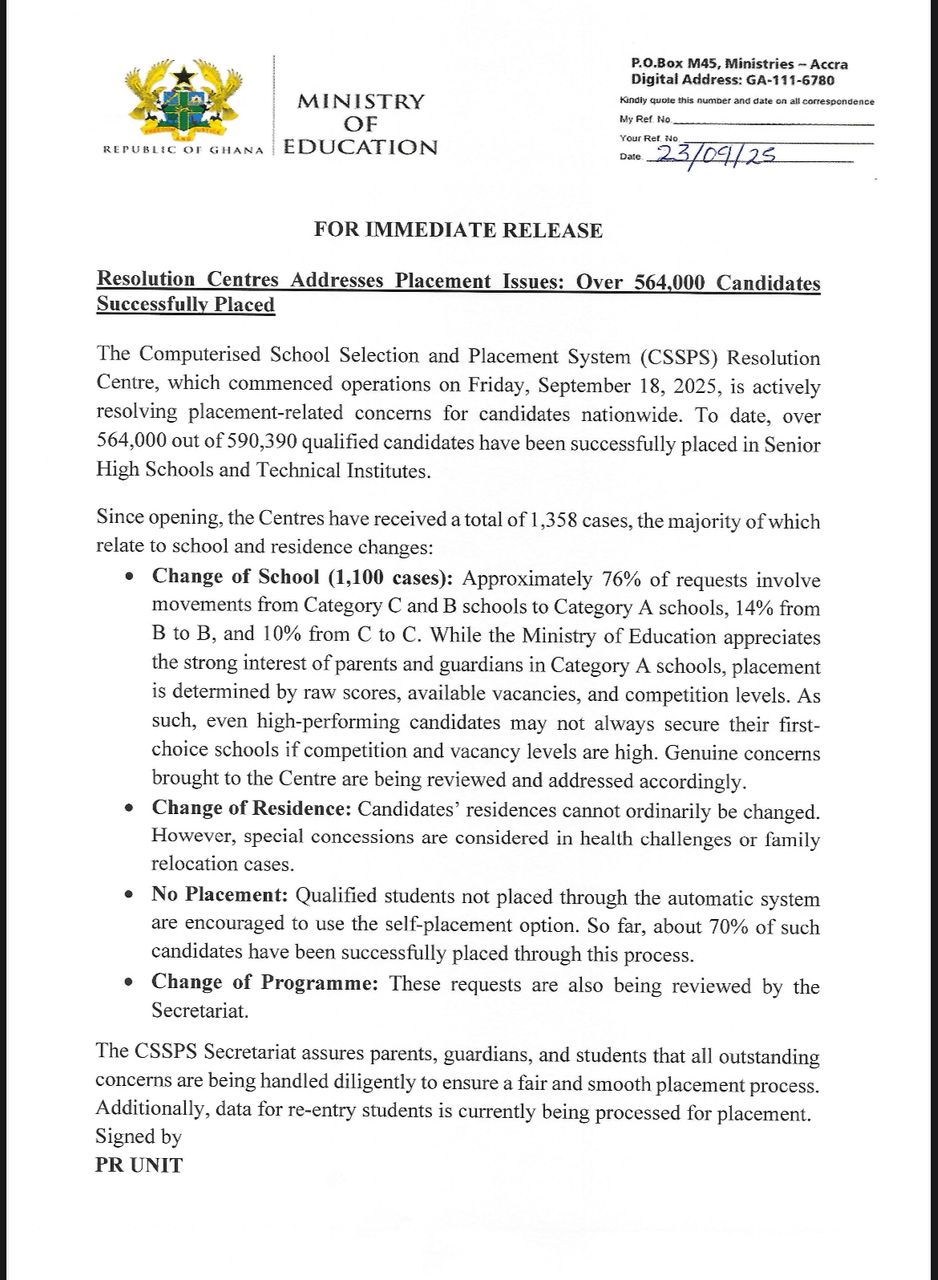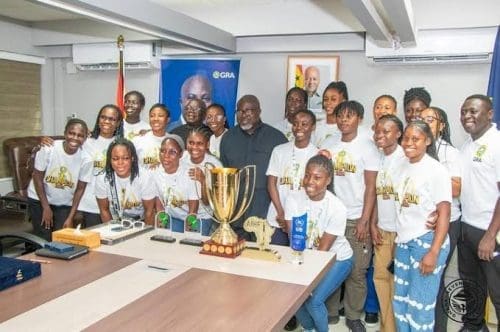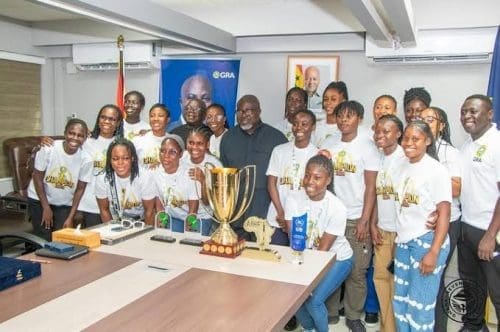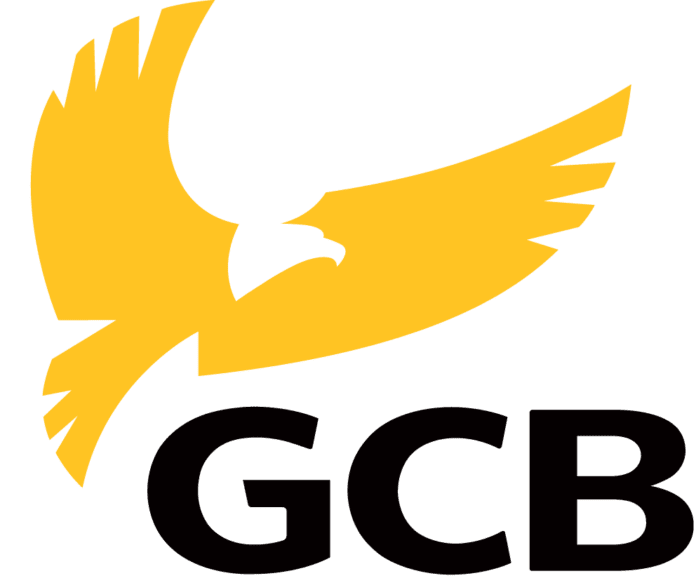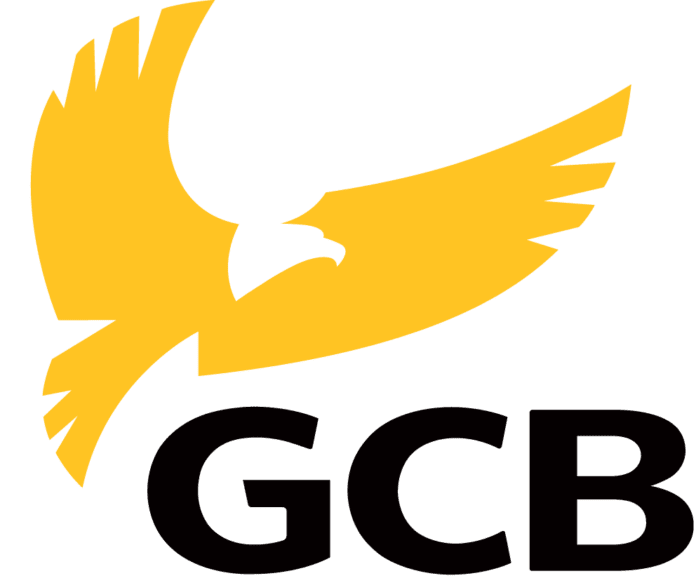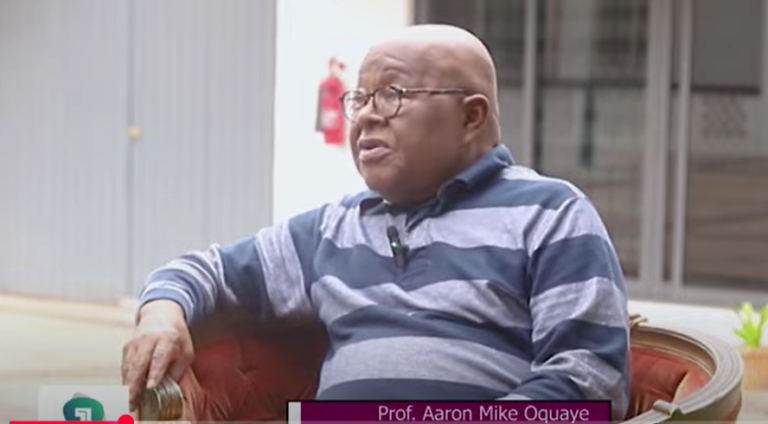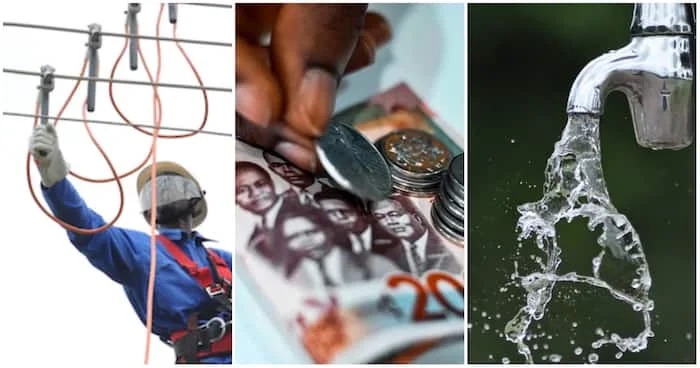Four out of six members of the Bank of Ghana’s Monetary Policy Committee voted in favour of cutting the policy rate by 350 basis points to 21.5 percent at the 126th Monetary Policy Committee (MPC) meetings held from September 15-17 2025.
This was contained in the minutes of the Committee’s recent meeting.
The members based their decision on signs of an improving economy, a more stable outlook and continued easing in inflation.
However, the Committee also highlighted risks ahead. In particular, they cautioned that upcoming utility tariff hikes could exert fresh pressure on inflation which will potentially slow down the disinflation process.
Also, the Committee revised the single currency Net Open Position of banks from ± 5 percent to between 0 and –10 percent, effective October 1, 2025.
The monetary policy rate remains the benchmark for lending and influences the cost of credit for businesses and households.
Here is the policy decision submissions by MPC members:
MEMBER 1
The global economic environment remains challenging, reflecting persisting uncertainty from the trade and economic policy outlook. While global growth was resilient in the first half of 2025, the outlook remains fragile given the heightened uncertainty. Global inflation is, however, expected to decline, driven by easing crude oil prices and softening financial conditions. Notwithstanding the heightened uncertainty and its possible dampening effect on global activity, the adverse impact on the disinflation process requires that policymakers, especially in emerging market and developing economies, stay on a cautious policy trajectory.
Domestic macroeconomic developments continued to improve and have broadened, with a positive outlook. Economic activity picked up further in the second quarter, with indications of continuing strong activity in the third quarter, underscored by improved confidence. Second quarter GDP data released by the Ghana Statistical Service showed the economy expanded at a robust pace, 6.3 percent, up from 5.7 percent for the corresponding quarter of 2024. High-frequency measures of activity, including the Composite Index of Economic Activity (CIEA) and the Purchasing Managers Index, point to continuing robust real sector activity. Also, the business confidence survey sentiments point to significant improvement, while consumer confidence marginally softened.
The external payments position continued to improve. A significant increase in the current account balance, driven largely by increased gold and cocoa exports, supported strong international reserves buffers. Inflation decelerated for the eighth consecutive month to a multi-year low in August 2025, and the disinflation process has broadened across the consumer price basket. This has been driven largely by the prudent monetary policy stance, fiscal consolidation, improved food supply and significantly improved external payments position. The strong buffers along with a prudent monetary policy stance, strong cedi liquidity management and sustained fiscal consolidation should support the disinflation process. There are, however, some risks, including persisting uncertainty and the effect of global trade policy, uncertainty about the size of potential utility tariff adjustment as well as the recent pressures on the Ghana cedi. On balance, however, the downside risks outweigh the upside risks, suggesting that the disinflation process is set to continue.
The current developments provide scope for a recalibration of the monetary policy stance to provide some respite to the real sector of the economy since the output gap remains negative. Given the relatively well-anchored inflation expectations, reflected in the broadening disinflation process, easing demand pressures from the slower expansion of the key monetary aggregates and continuing tight monetary conditions, I vote to cut the MPR by 350bps to 21.5 percent. In addition, I strongly support other policy measures, including adjustments in the Net Open Position (NOP) of banks and the policy corridor to reinforce the interest rate decision.
MEMBER 2
Recently released data suggest improvements in global economic conditions during the first half year, supported by modest declines in trade tensions and easing financial conditions. These developments have resulted in upgrades of global growth projections by the IMF. The broad decline in headline and core inflation across several advanced economies has provided some momentum to easing monetary policy and, in turn, financing conditions. In the domestic economy, the disinflation process has continued with downward trends in headline inflation to 11.5 percent in August, from 12.1 percent in July, driven by food and non-food inflation. Non-food inflation dropped sharply to 8.7 percent in August, from 11.4 percent in June, partly supported by the currency appreciation. Additionally, inflation expectations across the various segments of businesses, consumers, and the banking sector declined, indicating easing underlying inflation pressures. Economic activity has remained resilient in the first half year, and in the second quarter, GDP growth was 6.3 percent , relative to 3.5 percent same period in 2024, and driven mainly by the services sector.
The Bank’s updated CIEA also indicated a strong uptick in economic activity, supported by increased port activity, imports, exports, and industrial consumption of electricity. In addition, the latest consumer and business surveys reflected continued optimism about macroeconomic conditions. The banking sector performance was robust, reflected by strong total asset growth. In addition, banks’ profitability, solvency, asset quality, and efficiency indicators also improved. The capital gap in the industry has narrowed slightly as banks continued with the recapitalisation process to strengthen the sector.
The external sector continued to record a robust performance in the year. The trade account registered a large surplus driven by higher export earnings from gold and cocoa. Continued improvements in trade account and private transfers are expected to impact on the current account balance, and the overall balance of payments position. The strong reserve buildup provided strong buffers for the cedi, despite the recent depreciation on account of increased demand pressure. This notwithstanding, the cedi appreciated against the major trading currencies in the year to early September.
These positive macroeconomic conditions provide scope for easing the monetary policy stance, and I would have voted for a steeper cut in the policy rate but for some emerging risks, such as the possible increase in utility tariffs and the recent developments in the foreign exchange market. On this note, I vote to lower the MPR by 350 basis points to 21.5 percent.
MEMBER 3
We have listened to staff over the past three days, and the data presented to the Committee showed no significant shift in the macroeconomic fundamentals from the view the Committee held at the July 2025 MPC round. Monetary policy stance has tightened further, fiscal policy implementation is on track and in line with expectations of the 2025 budget, reserve buffers remain adequate at 4.5 months of import cover, the current account as at the third quarter shows a provisional surplus of 3.3 percent of GDP, growth remains strong, and the overall health of the banking sector remains sound, well-capitalised, and profitable. What has changed significantly is the pace of disinflation, which has accelerated since the July MPC meeting. I will therefore focus my decision on how I see the evolution of inflation in the near term. My decision to lower the policy rate is influenced by the following factors:
The first factor is the pace at which inflation is coming down. From the presentation made by staff, inflation seems to be getting to within the medium-term target faster than earlier envisaged. In March 2025, when the first staff forecast was presented, staff indicated that inflation would get back to within target by the first quarter of 2026. The rapid ease in inflation has altered this outlook, and inflation is declining to within the target earlier than anticipated, and is likely to be within the target between September to December 2025. This improved inflation outlook provides scope for easing the stance of monetary policy.
The second reason for easing the stance of monetary policy is based on my view of how I see global economic conditions and the pass- through of global uncertainties to the domestic economy. Uncertainties persist, and this has led to a weakening of advanced economies’ growth conditions. The United States dollar has weakened, and commodity prices, especially for gold and cocoa, continue to surge.
Crude oil prices have also dropped with a weakening in growth prospects in Advanced Economies. In my view, the uncertainties in global conditions will likely persist, commodity prices will remain favourable and with lower inflation abroad, will support lower domestic inflation.
The last point is on the staff forecast and outlook for inflation. The forecast, apart from showing that inflation will get to within the target faster than envisaged, also showed that inflation will be around 9 percent by the end of 2026 in the baseline scenario, devoid of shocks to the domestic economy. With inflation at this level, the real monetary policy rate will be excessively high, and this provides room to ease the monetary policy rate. The current high real interest rate is damaging to the real sector of the economy. On this basis of these arguments, I vote to lower the MPR by 300 percentage points to 22.0 percent.
MEMBER 4
Global growth was strong in the first half of the year on account of declining trade tensions, easing financial conditions, frontloading of exports in the first quarter, and fiscal expansion in certain countries. The outlook, however, is unclear due to rising uncertainty and high tariffs. Global inflation is projected to decline, but with country-specific variations in the forecast. Global financing conditions have eased due to declining policy rates, long-term bond yields, and a strong rebound in portfolio flows to emerging market and developing economies. Financing conditions are projected to ease further. The US dollar weakened in response to uncertainties in the global market. These global developments are expected to boost Ghana’s exports, decrease imported inflation, and the ease in policy stance could potentially trigger a search for higher yields in emerging economies, including Ghana.
On the domestic front, the real sector recorded a real GDP growth of 6.3 percent in quarter two compared with 5.7 percent growth same time in 2024. The CIEA signalled a pick-up in economic activity in July 2025, backed by port activities, imports, domestic VAT, exports, and industrial consumption of electricity. Latest confidence surveys reflected positive sentiments. Consumer confidence remained largely strong despite some softening. Business confidence rose, while business and consumers’ inflation expectations for the next six months eased.
The external sector remained strong, recording a trade surplus of US$6.2 billion at the end of August 2025, compared with US$2.1 billion same time last year. The trade surplus, however, slowed between June and August due to a strong pick-up in imports and some decline in gold exports. This translated into a marginal reduction in the gross international reserves from US$11.1 billion in June to US$10.7 billion in August, equivalent to 4.5 months of import cover.
The strong pick-up in imports, coupled with a sharp drop in remittance inflows, resulted in some pressure on the exchange rate. The cedi consequently shed some of its earlier gains, from 42 percent appreciation in June to 21.0 percent on September 12, 2025. The cedi, however, remains strong, supported by inflows from the gold and cocoa sectors. Total liquidity increased marginally to 2.1 percent in July 2025, while reserve money contracted by about 6 percent, reflecting a strong sterilisation effort. Credit to the private sector moderated as banks’ appetite for investments in BoG bills, and treasury bills increased.
Nominal credit growth was 8 percent in July 2025 compared with 17.7 percent in July 2024. Fiscal consolidation was largely on track, with budget execution outperforming the fiscal anchor under the IMF programme. The banking sector recorded high profit levels, relative improvement in solvency and efficiency indicators and a narrowed capital gap. However, overall asset quality remains a concern but is expected to improve following full implementation of Non-Performing Loan (NPL) guidelines.
Inflation has trended downwards in the year and was at 11.5 percent in August 2025. All the core inflation measures declined, and headline inflation is projected to decline further. The developments in inflation have opened a real interest rate gap of about 14 percent.
Under the current circumstances of declining inflation, a wide real interest rate gap and growth prospects, the direction of the decision on the policy rate is clear. However, there are some upside risks in the outlook. The business and consumer surveys, coupled with some expert surveys, pointed to the emerging exchange rate pressures, alongside the possible utility price adjustment in the last quarter of 2025.
Given that most of the gains recorded in the first half of the year were derived largely from favourable exchange rate performance, the emergence of demand pressures in addition to possible utility tariff hikes requires some caution in the magnitude of the cut in the policy rate. I, therefore, vote for a 300 basis points cut in the MPR to 22.0 percent. In addition, I propose some adjustments in the net open position of banks to promote interbank market activity, as well as a review of Payment Service Providers registration and renewals.
MEMBER 5
Global growth signals resilience, but the outlook is clouded by uncertainty. Global inflation is expected to wane on the back of lower food and energy prices, although there are variations in progress towards inflation targets across regions. I also note easing financial conditions, which are expected to continue as central banks embark on policy rate cuts. In the domestic economy, the external sector has been strong with a significant balance of payment surplus. In the first eight months of the year, the trade balance recorded a large surplus, and the external reserve buffers was equivalent to 4.5 months of imports cover in August 2025. The exchange rate market saw a sharp depreciation of the cedi in August on the back of increased demand pressure coupled with supply constraints.
In the real sector, provisional data show real GDP growth of 6.3 percent in the second quarter of 2025, compared with 5.7 percent in 2024. The CIEA showed a pickup in economic activity in July 2025. Both consumer confidence and business sentiment improved, while inflation expectations for the next six months eased. These developments signal improved growth prospects.
Growth in broad money supply moderated over the review period in line with the tight monetary stance, despite the reduction in the monetary policy rate and money market interest rates. Despite the marginal pickup in July, private sector credit growth has remained sluggish, partly due to banks’ preference for investments in BoG bills and exchange rate effects. In the outlook, the ongoing liquidity management is expected to moderate reserve money growth and impact monetary aggregates through sterilisation efforts. Sound liquidity management will be critical in supporting the disinflation process.
The financial sector continued to improve in terms of solvency, liquidity, efficiency and profitability indicators. Though the NPL ratio improved in August 2025 compared to the corresponding period last year, asset quality remains a concern. The capital gap for the banking sector narrowed year-on-year, and shoring up the capital position of undercapitalised banks would be necessary to improve the sector’s resilience. The latest macro-prudential risk assessment suggests broadly subdued systemic risks on account of robust solvency measures amid strong liquidity conditions and earnings, as well as well-contained contagion risks.
The fiscal position reflected continued consolidation with the deficit outturn (commitment basis) lower than the target for the period. While revenue missed the set targets, expenditure remained within target. The shortfall in revenue must be addressed to avoid derailing the fiscal consolidation efforts. In the near term, I believe the expected issuance of medium to long-term government bonds will help curtail the excess liquidity on the market.
On recent price developments, headline inflation has declined steadily for eight consecutive months in 2025 (driven by both food and non-food inflation) and is projected to reach the target in the near term. Core inflation measures have continued to ease, inflation expectations have declined, and the disinflation process is expected to continue. I believe with the high real interest rates of 13.5 percent, there is ample space to ease monetary policy further, but remain vigilant of the upside risks to the inflation outlook, such as the proposed upward adjustment in utility tariffs and the recent pressures on the local currency. I vote for a reduction in the MPR by 350 basis points to 21.5 percent.
MEMBER 6
The World Economic Outlook has indicated that global economic activity remains resilient due to the easing of trade tensions. This has led to upward revisions of global growth forecasts, from 2.8 percent in April to 3.3 percent in July, reflecting widespread improvements in economic activity across many countries. Nevertheless, high tariffs and increased uncertainty in the global economic environment may hinder growth in the near term. Global inflation has broadly eased, attributed to lower prices for food and energy, as several countries edge towards their inflation targets, despite some renewed inflationary pressures. Furthermore, financing conditions are anticipated to ease further as central banks ease monetary policy stance, while portfolio flows to Emerging Market and Developing Economies have increased, and the US dollar has depreciated by approximately 8 percent. I believe that these global developments could boost exports, reduce imported inflation, and lead to increased portfolio inflows in the domestic economy.
Domestic economic activity has been robust. Real GDP growth rose by 6.3 percent in the second quarter of 2025, surpassing the 5.7 percent growth recorded in the same period last year. High-frequency indicators also point to a recovery in economic activity, as the Composite Index of Economic Activities for July 2025 demonstrated positive momentum. The Purchasing Manager Index remained above the benchmark level, and consumer and business confidence surveys continued to show positive and robust sentiments.
The external sector remains strong, despite a slight dip in reserves since the last MPC meeting. The trade surplus for the first eight months was US$6.2 billion, up from US$2.1 billion in the same period in 2024, driven by increased export earnings from gold and cocoa. However, gross international reserves decreased to US$10.7 billion, from US$11.1billion in June 2025, covering imports for 4.5 months.
The broad fiscal budget from January to July 2025 indicated that efforts towards fiscal consolidation remained on course, evidenced by a fiscal deficit on commitment basis of 1.1 percent of GDP, which outperformed the targeted 2.1 percent of GDP. The primary balance on commitment basis (the fiscal anchor under the IMF-supported PC-PEG) recorded a surplus of 1.0 percent of GDP compared to the targeted surplus of 0.5 percent of GDP. These reflect restrained government expenditure, although revenue mobilisation has underperformed so far.
Reserve money growth slowed by 6.5 percent in August 2025 from 32.3 percent in August 2024, indicating a tighter monetary stance. Money supply growth fell below trend, while private sector credit remained sluggish due to shifts in the banks’ investment appetite towards BoG bills and exchange rate movements. Easing monetary policy could prompt banks to rebalance and lend more. The market remains highly liquid, with interbank transactions mostly within the policy corridor near its lower boundary. Growth in bank assets remained robust in July 2025, although it slowed year-on-year, primarily driven by increases in investment. The sector remains profitable, with improved solvency and efficiency, and the NPL ratio has slightly improved.
The capital gap narrowed due to the recapitalisation of some banks. In the year-to-date, the cedi has demonstrated considerable strength, appreciating by 28.9 percent against the US dollar by the end of August 2025. Nonetheless, the cedi experienced some downward pressure between June and August. This highlights the need for additional measures to address the foreign exchange demand pressures and ensure exchange rate stability to support the disinflation process.
Over the past two months, the disinflation process has continued, with headline inflation trending down to 11.5 percent in August from 23.8 percent at the end of 2024. The decline has been broad-based, reflected in both food and non-food inflation. Core inflation measures have also eased, while inflation expectations continue to decline. The downward trend in inflation has been broadly supported by tight fiscal and monetary policies, with inflation expected to decline further in the coming months. The potential upward adjustment in utility prices and international crude oil price movements could, however, pose some risks to the disinflation process going forward.
I believe the BoG’s sterilisation efforts and reserve buffers should be able to manage the liquidity in the system and maintain the cedi’s stability until year-end. The staff has indicated that the downside risks to inflation are more likely to materialise, and this, I believe, should mitigate the effect of any potential utility and fuel price hikes, helping steer inflation toward its medium-term target of ±8% by the end of 2025. The current positive real monetary policy rate is high and may rise with disinflation if the policy rate cut isn’t bold enough.
I am therefore in favour of a 350-basis-point cut in the MPR to 21.5 percent, along with additional measures aimed at stabilising the cedi from further fluctuations. The size of this cut should allow for further reductions in average bank lending rates, which should inevitably increase private sector credit and stimulate output growth.
The next Monetary Policy Decision will be published after the MPC meetings in November 2025.
 Dembele was named the Player of the Year at the ceremony held in Paris
Dembele was named the Player of the Year at the ceremony held in Paris
